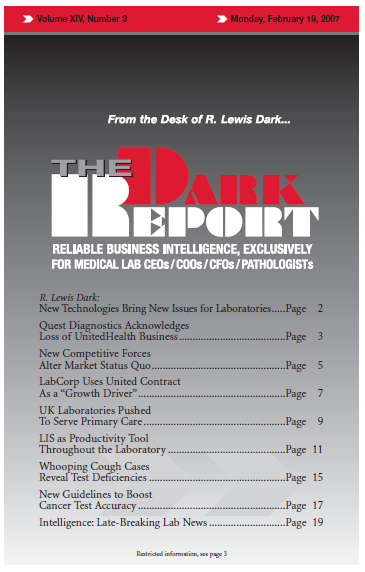CEO SUMMARY: In the boxing world, prize fights between heavyweight contenders always grab the world’s attention. The same is true in the lab industry, where the current fight between the industry’s two heavyweights has the potential to reshape several important aspects of the national market for lab testing services. This boxing match started on January …
Quest Acknowledges Loss of United Business Read More »
To access this post, you must purchase The Dark Report.


